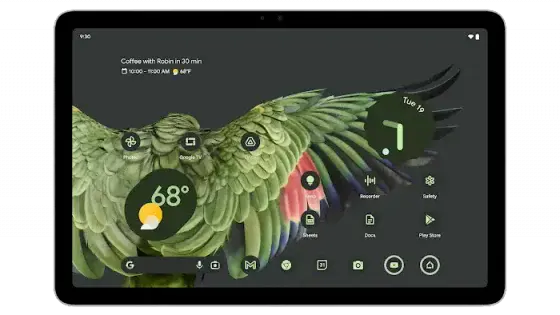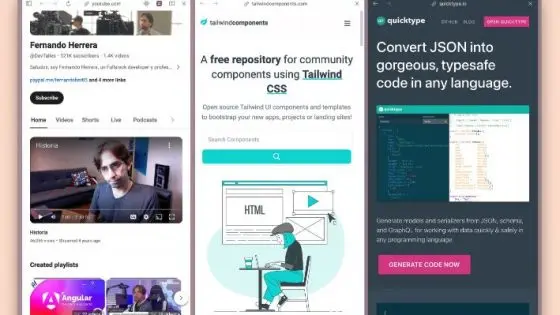What will Google Search look like with artificial intelligence?

You've heard of, and perhaps use, ChatGPT, Microsoft Bing AI, and even Google Bard. They are chatbots that communicate with the outside world with the help of artificial intelligence. These language models have literally exploded in popularity. While ChatGPT and Google Bard are standalone chatbots, Microsoft has gone in a more integrated direction. Unknowingly or maybe intentionally, he triggered a red alarm in Google. With Microsoft integrating artificial intelligence into the search results themselves, the main merit of Google, all alarms went off on the Google dashboard.
Somewhat lazily, or perhaps very cautiously, Google went about integrating artificial intelligence into its search engine. After months of rumors and speculation, Google finally revealed its latest artificial intelligence, Search Generative Experience (SGE), at the I/O 2023 event.
This is currently in the experimental phase, but early tests are still underway in America within the framework of Google Labs services. Let's take a look at the first impressions of how Google will change search and SEO optimization.
How will Google's Generative Search Experience (SGE) work?
At first glance, the Google search engine has remained relatively the same. You will enter your search words or questions in the familiar window. But when the results start to appear, the first changes start to be noticed.
At the top of the page, above all other results, a shaded section appears showing what SGE's generative AI has found. Google calls this a snapshot and it contains key searched information with relevant links for deeper research. It's all done with Google's language models, which gather information from all over the web.
A big focus of Google's generative AI is that users have the possibility of insight into the resources used. "As part of their answer, we want language models to tell us what resources we can use to dig deeper," says Liz Reid, vice president of Google Search.

SGE works very similar to what you are used to with other chatbots. If so far we have browsed the web using keywords, with SGE we will be able to search with full questions and also talk to the search engine. For example, Reid asked the AI what Bluetooth speakers to use at the beach. The search engine first generates classic results, followed immediately by artificial intelligence results. It is expected that you will first get a few features that are important for using speakers on the beach (water resistance, battery autonomy, robustness …). More importantly, SGE will remember your question, and when you want to complete it with, for example, "Which Bluetooth speakers for under $100 are good for the beach?", you'll get a more personalized answer.
It's all powered by Google's latest language models, including PaLM 2 and the Multitask Unified Model (MUM), which they use to understand different forms of media. The experience will be best expressed on mobile devices. On smaller screens, AI results will occupy almost the entire surface, which could cause many problems for classic SEO optimization.
Also (at least for now) you won't get answers to exactly every question. SGE will avoid sensitive topics such as finance and health.
Google representatives say that their task is also to change the way consumers approach web searches. Artificial intelligence should direct us to richer questions, which would consequently lead to more concrete answers. Classic keyword searches (best phones, cheap computers, Facebook, Slovenia) remain unchanged, although they will probably gradually lose their importance. Those more articulate questions (What should I see in Ljubljana Äat the weekend, Which restaurant is the best in Gorenjska Ä€¦), for which Google has not had very rich answers so far, will finally get a more concrete answer. shape.
A quick snapshot of how AI search will work.
Trained to pull data from all over the Internet, large language models can help answer these questions by performing many different searches at once and then combining that information into a few sentences and a few links.
Google is very confident that it will deliver verified facts to SGE and not a mixture of basic false facts and literal lies. ChatGPT, Bing and Bard often deliver false data. The PaLM 2 language model should improve this statistic, but it certainly won't solve the problem entirely.
What will happen to SEO optimization?
The SEO community continues to be concerned about what will happen to content, especially after the launch of Google Bard, which provided very little or no response in its responses. links to the websites from which it obtained the content. Websites and Google have always been in a symbiotic relationship, tied together by SEO. After the presentation of the SGE, which will display certain connections.
But now other questions arise.
- How will SGE affect the click-through rate?
- Which websites and hits will it include in the AI results?
- How will this change keyword analysis?
- Will there be a dedicated search AI console?
It is still too early for answers. There are many guesses, but it is difficult to predict in which direction the Google search engine will develop. The fact is that the competition in the field of SEO content will further intensify.


























